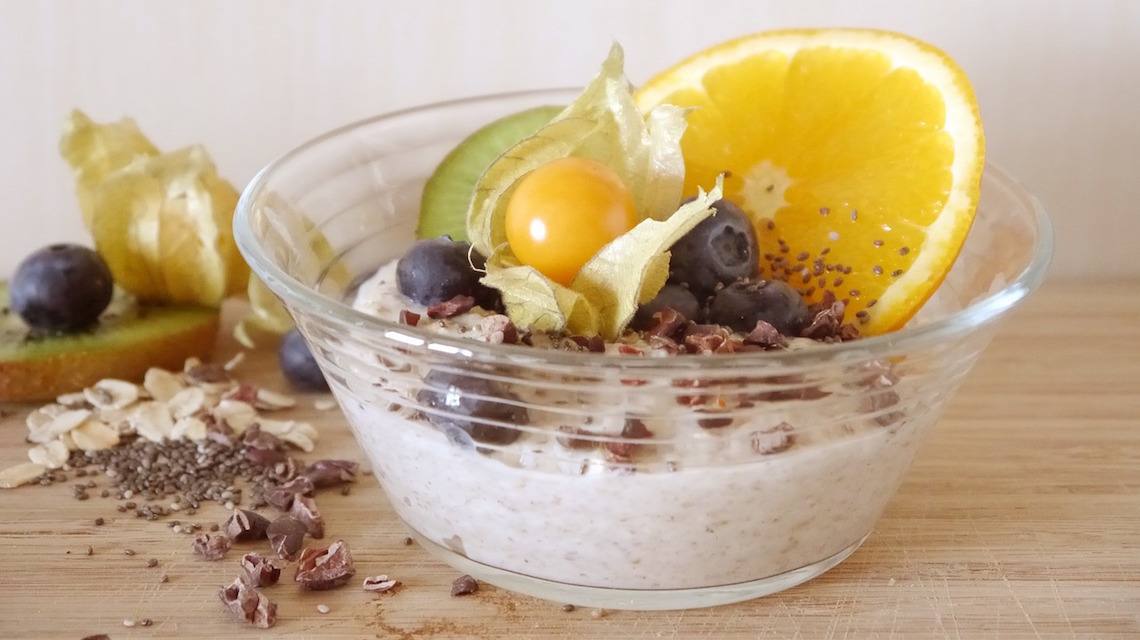As the mornings get cooler, getting out of bed each day seems to get harder and harder… Thankfully, a bowl of creamy oats can make it all ok. And, if you add a tablespoon of chia, not only is your breakfast delicious, it’s also providing a number of nutritional benefits that can assist with immune support.
We asked our resident nutritionist Emma Morris to explain why adding chia to your oats is a great winter breakfast, and to also share some of her top tips for staying in good health this winter:
Why Emma loves Chia and Oats
- High fiber – Combing whole grain oats with chia gives you a solid dose of a soluble fiber called Beta-Glucan. Beta-Glucan has been shown to assist with a number of potential health benefits including reducing blood sugar and insulin response; decreasing LDL and total cholesterol; as well as increasing growth of good bacteria in our digestive tract. Chia is also a fantastic source of fiber, with the perfect ratio of both soluble and insoluble fiber. Soluble fiber forms a gel in water, while insoluble fiber remains close to its original form throughout the digestive path. Both types of fiber are vital for healthy digestion, the soluble fiber helping to moderate blood glucose levels and lower cholesterol while the insoluble fiber provides roughage, clearing out toxins as it passes through the digestive tract and lowering the risk of colon cancer.
- Antioxidants – The antioxidants in chia can help fight off infection. Most invaders produce free radicals which weaken our immune system. Antioxidants help to combat the free radicals and help our bodies fight off the invader/infection. Try topping your chia oats with seasonal fruits like kiwi fruit, apple or pear, or add frozen berries for a higher antioxidant content.
Emma’s top tips for a strong immune system this winter:
- Exercise – Overtraining can take it’s toll on your immune system, whereas calming exercise like yoga or Tai Chi are much more gentle on your body and less likely to weaken immunity
- Be mindful – many people don’t realise how much stress, depression and grief can affect your immune system. Taking care of your mental and emotional health will pay-off for your body, too.
- Dietary intake – Immune strength is supported by an optimal intake of vitamins and minerals. Ensure you are eating a balanced diet and meeting your daily recommended intake of vitamins A, B1, B2, B6, B12, iron, zinc and magnesium.
Who is Emma Morris?
Emma Morris is a highly qualified and experienced Dietitian and Sports Dietitian. She has a Bachelor of Applied Science in Human Movement as well as a Bachelor of Nutrition and Dietetics.


